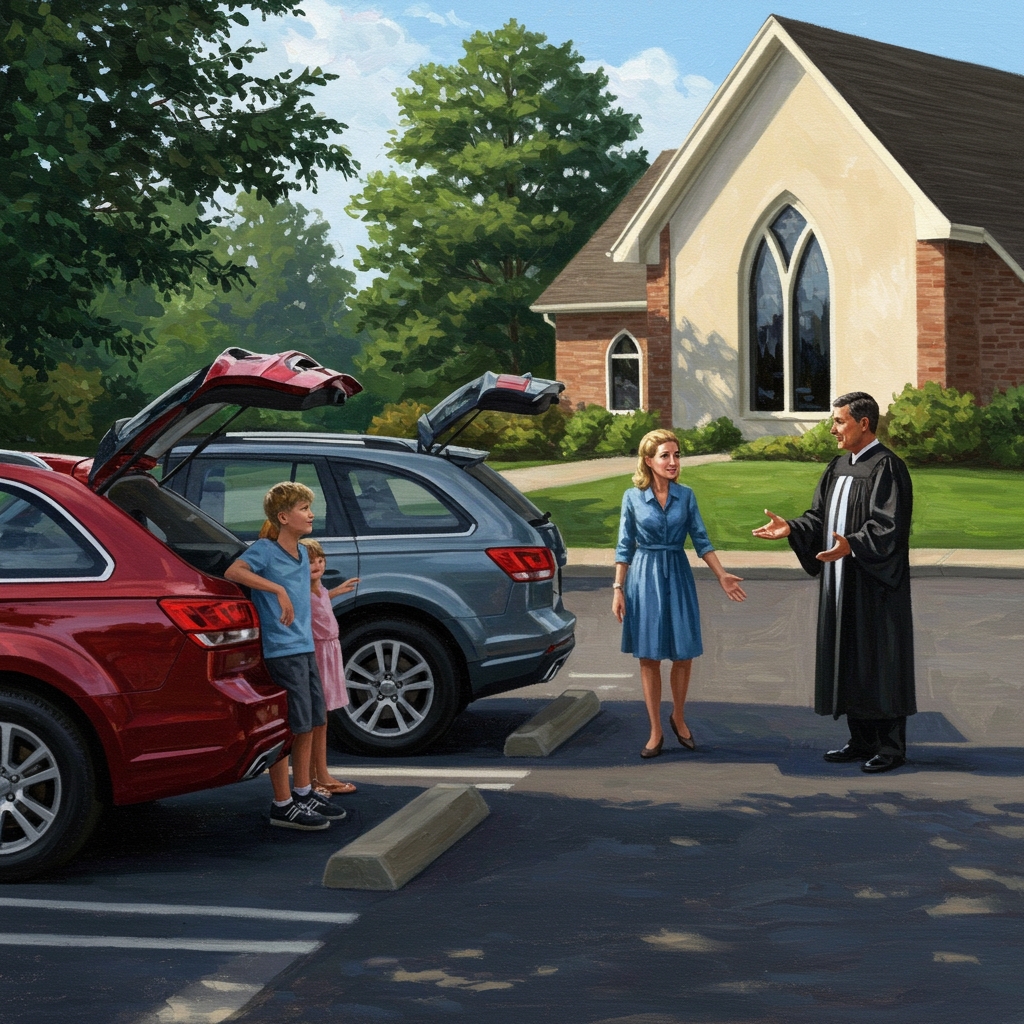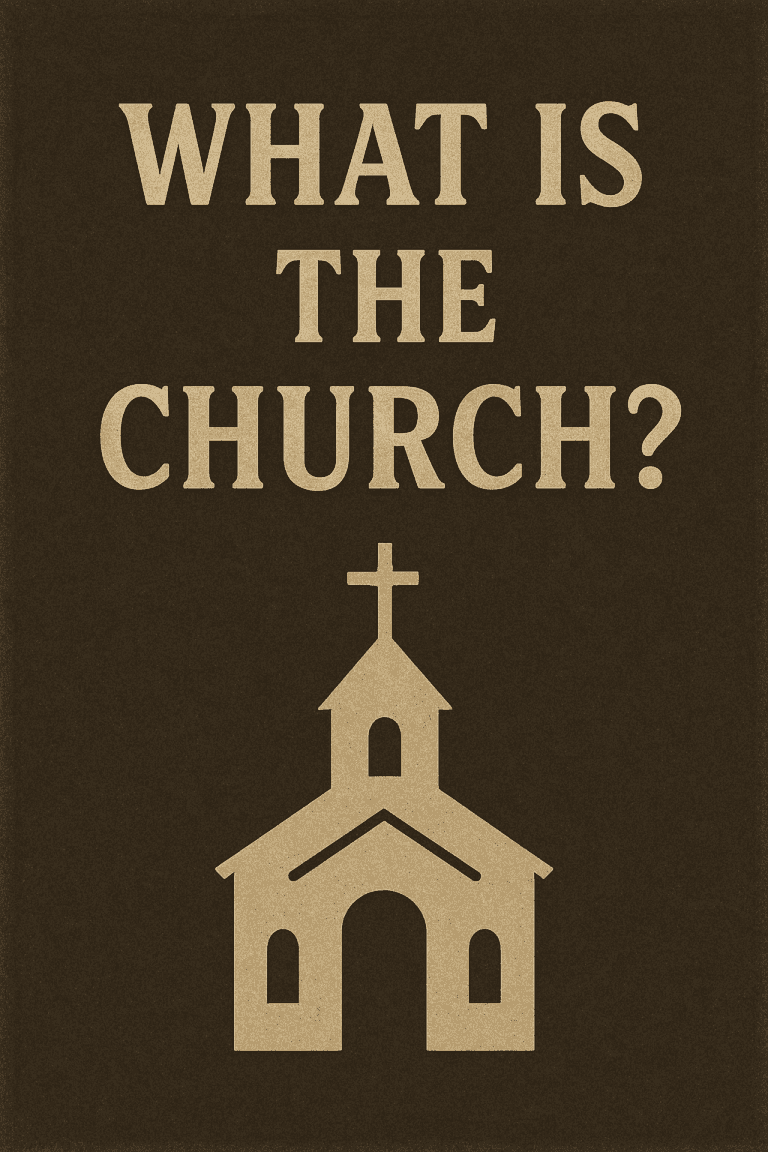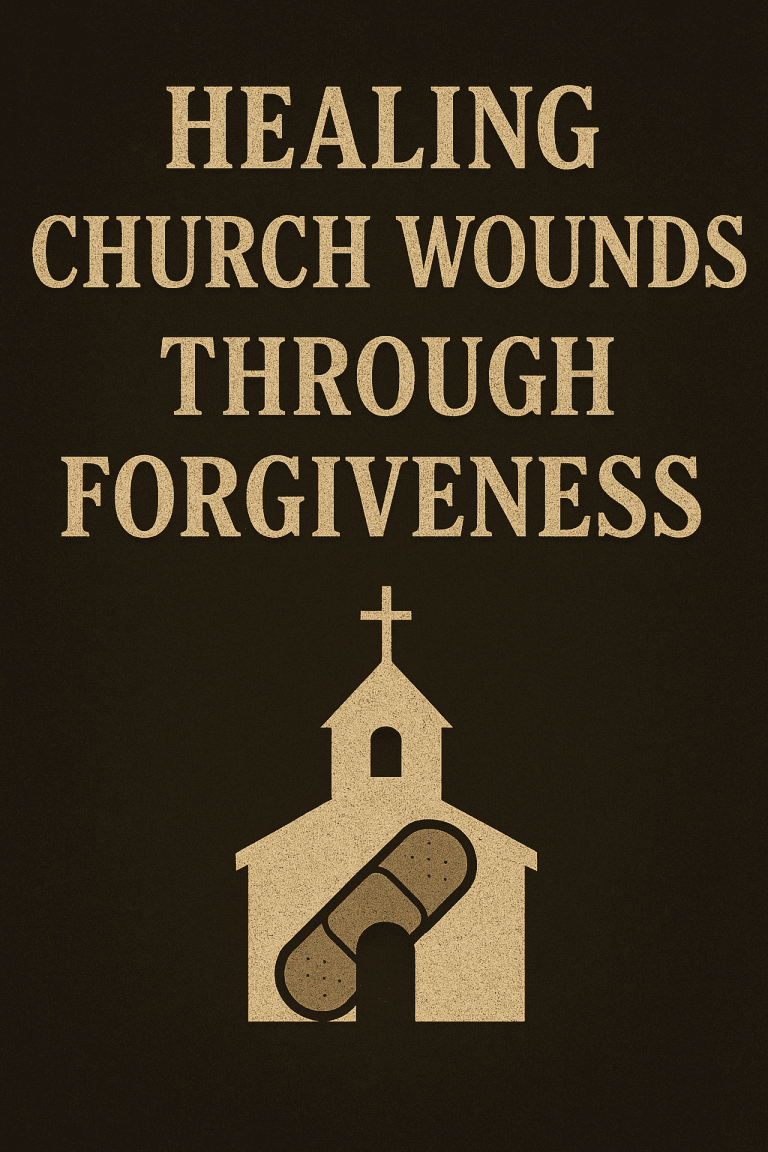Why People Leave the Church After Being Hurt (and What the Bible Says)
Church hurt is not a theory. It’s a lived reality. Every year, thousands of believers quietly step away from the church — sometimes for a season, sometimes for good. The question presses in: why do people leave the church, especially after being hurt?

Some assume it’s because faith itself failed. Others think it’s simply because people are weak. But Scripture paints a more honest picture. The Bible shows that betrayal, hypocrisy, misplaced expectations, and even survival instincts can drive people away. If we don’t understand these reasons, we will be too quick to judge and too slow to restore.
Let’s look at why people leave the church after being hurt, and what God’s Word says about it.
When Leaders Wound Instead of Shepherding
One of the deepest reasons people leave is leadership failure. The Old Testament records God’s indictment of shepherds who used the flock instead of protecting it: “You eat the fat and clothe yourselves with the wool, you slaughter the fat sheep without feeding the flock” (Ezekiel 34:3). Instead of caring, they consumed. Instead of guarding, they scattered.
Many today walk away because pastors or leaders have manipulated, controlled, or covered sin instead of shepherding. Jesus warned against leaders who “tie up heavy burdens and lay them on men’s shoulders” (Matthew 23:4). When spiritual authority is twisted into abuse, people leave not because they hate Christ, but because those who bore His name wounded them.
That’s why people leave the church after being hurt: they confuse the character of Christ with the failures of His under-shepherds.
The Pain of Betrayal in Community
It’s not only leaders. Sometimes the hurt comes from peers. David described this pain in Psalm 55: “It is not an enemy who reproaches me, then I could bear it… but it is you, a man my equal, my companion and my familiar friend” (vv. 12–14). Betrayal inside the circle of trust cuts deeper than outside attacks.
Jesus Himself warned in Matthew 24:10, “Many will fall away and will betray one another and hate one another.” Betrayal is not new. It was woven into the story of God’s people long before us.
When gossip spreads unchecked, when friends become enemies, when brothers and sisters in Christ wound each other, many cannot bear the contradiction. They leave not because they have abandoned Christ, but because they fear His body will wound them again.
Hypocrisy and Unconfessed Sin
Another reason people leave the church is hypocrisy. Jesus called the Pharisees “whitewashed tombs” — beautiful on the outside but full of death inside (Matthew 23:27). Paul rebuked the Corinthians for tolerating immorality so extreme even unbelievers condemned it (1 Corinthians 5:1–2).
When people see:
- Sin tolerated
- Sin covered
- Sin ignored,
they lose trust in the church’s witness. They ask, If this is what Christians are like, why should I stay?
Why do people leave the church? Often because unconfessed sin has made holiness optional. And when holiness is treated lightly, love grows cold (Matthew 24:12). People sense the gap between profession and practice, and disillusionment drives them out.
Misplaced Expectations and Disappointment
Sometimes people leave because they expected the church to be perfect. They expected never to be disappointed, never to be let down, never to be failed.
Psalm 118:8 reminds us, “It is better to take refuge in the Lord than to trust in man.” The church points us to Christ, but it is not Christ. It is a gathering of sinners being sanctified, not glorified.
When ultimate trust is placed in human leaders or in the institution itself, disappointment becomes inevitable. That disappointment often leads to departure. People say, If this is all the church is, I don’t need it.
Why people leave the church after being hurt is not always about abuse or betrayal. Sometimes it’s about misplaced hopes. They asked the church to be what only Christ can be.
Pastor Worship and the Danger of Misplaced Devotion
Another reason people leave the church is what might be called pastor worship. It happens quietly, sometimes without anyone naming it:
- A gifted leader
- A powerful preacher, or a
- Charismatic personality
begins to overshadow Christ in the eyes of the congregation. People start quoting the pastor more than they quote Scripture. They build faith on a man instead of on the Savior.
But here’s the truth: no pastor can carry that weight. When leaders are elevated beyond their God-given role, disappointment is guaranteed. Paul had to correct the Corinthians for this very problem: “Each one of you is saying, ‘I am of Paul,’ and ‘I of Apollos,’ and ‘I of Cephas,’ and ‘I of Christ’” (1 Corinthians 1:12). Dividing loyalties and misplaced devotion created fractures in the body of Christ.
I know because I lived it. I placed the pastor on a pedestal in one church I attended, and when he fell short — as all men eventually do — the result was pain for my family and for the congregation as a whole. The fallout was devastating. Families didn’t just leave that congregation; some left the church altogether, disillusioned because their faith had been tethered to a man instead of to Christ.
Why do people leave the church after being hurt? Because no human shepherd, no matter how gifted, can be the Good Shepherd. When devotion is misplaced, the inevitable cracks lead to disillusionment. Christ alone is worthy of worship.
Cultural Pull and Competing Loves
Not every departure is born from pain. Sometimes it is born from distraction. Paul wrote of Demas, who left him “having loved this present world” (2 Timothy 4:10).
When hurt happens, the pull of the world can feel even stronger. Someone who was already wavering may use pain as the reason to slip away completely. Why stay? they ask, when life outside feels easier?
Why do people leave the church? Sometimes because hurt made the door out look wider. Sometimes because competing loves — career, comfort, lifestyle — already had their grip. The wound simply pushed them through the exit.
When Leaving Becomes Survival
But sometimes leaving is not rebellion or distraction. Sometimes it is survival.
Jesus Himself allowed for separation in Matthew 18:15–17. When a brother refuses to repent even after being confronted, Jesus said to treat him “as a Gentile and a tax collector.” That means there are times when leaving a fellowship marked by unrepentant sin is necessary.
It’s worth saying clearly: I’m not only talking about people who change congregations. That happens, and often it’s necessary when sin or dysfunction goes unaddressed. But for some, the wound runs so deep they don’t just leave a particular fellowship — they leave church altogether. They stop gathering, stop trusting, and sometimes even stop identifying with the body of Christ. That’s the heartbreaking reality behind much of today’s church hurt.
Why do people leave the church? Sometimes because staying in an abusive or toxic congregation would crush their soul. In those cases, leaving a local body does not mean leaving Christ. It may be the only way to preserve faith.
Why This Matters for Healing
If we don’t understand why people leave, we will miss the chance to walk with them wisely. Galatians 6:1–2 calls us to restore gently and bear one another’s burdens. That means listening without judgment, acknowledging the pain, and pointing them back to Christ without rushing them into shallow fixes.

The truth is, why people leave the church after being hurt is not simple. Sometimes it’s:
- Sin that’s been tolerated or excused
- Disillusionment with leaders or with the community itself
- A need for protection from abuse or dysfunction that went unaddressed
Always, it is painful. And that’s why the church needs humility here. Too often we explain departures only in terms of rebellion, when the real story is much more layered.
Christ Hasn’t Left, Even If We Do
At the end of the day, this is the truth: Christ hasn’t left, even when we do. He promised, “I will never leave you nor forsake you” (Hebrews 13:5). And He declared, “I will build My church, and the gates of Hades will not overpower it” (Matthew 16:18).
Why people leave the church matters. But more important is the truth that Christ never leaves His people. Human leaders may fail. Friends may betray. Sin may corrode. But the Shepherd of our souls remains faithful.
If you have walked away, don’t confuse the failures of the church with the faithfulness of Christ. He is not finished with His people. And He is not finished with you.
Walt Roderick is a Christian writer who cares more about biblical clarity than online applause. He writes to strengthen believers and confront spiritual drift.






